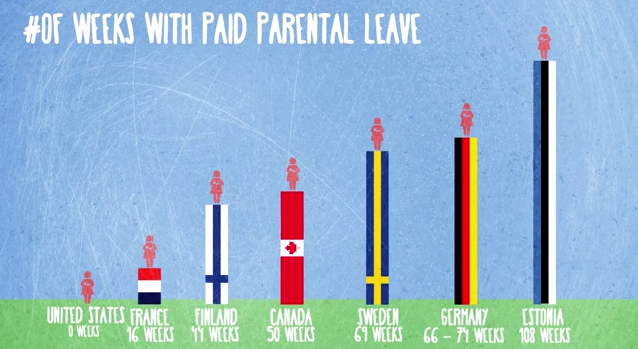Why is it that the U.S is such a developed country, but can’t allow for paid maternity leave? This practice is most definitely speaking to our American values: we’re a “live to work” society.
After having a class discussion about American values and how we reward productivity over all else, I saw a Buzzfeed video which caught my eye: statistics about maternity leave here in the U.S versus in other countries. The part I raised my eyebrows at was this graph.
Even France, the developed country that (next to the U.S) has the lowest amount of paid paternity leave, still gives off 16 whole weeks. Estonia gives over 2 years. I found this chart incredible. The U.S is at the bottom, not allowing any paid leave whatsoever, while a mother in Estonia can stay at home with her child until he is a toddler before going back to work.
What does this say about America if we aren’t giving any slack to women in the workplace who choose to have children? I’d argue it’s pushing them out of them out of the workforce. I know so many women, my own mother; for example, who decided to quit their jobs so they could raise children. I also know women who choose not to have children because it could mess up their careers. I’m not saying either of those are bad decisions, but I am saying these other countries so clearly sympathize with women needing those first few months to focus on their child while still earning money. The U.S forces them to make a choice: be a mother or a working woman.
